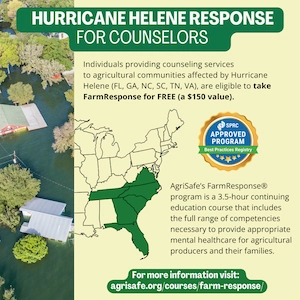Last updated on February 4th, 2025 at 01:26 pm
Women’s Health Resources
Women have significant exposure to agricultural work and therefore related health and safety risks from farm exposures. Leading occupational health hazards include acute injuries, pesticide exposures, agricultural dust exposures, zoonotic infections, negative behavioral health, and risk of adverse pregnancy outcomes and perinatal illness. Gender-based risks are related to key differences in size and stature that lead to increased physical strain and low maximal oxygen uptake.
In 2022, the ag census counted 1.2 million female producers. Fifty-eight percent of all U.S. farms (1.1 million farms) had one or more female producers making decisions about the farm’s operation, compared to 92% of farms with one or more male producers. This has significant implications for needing targeted women’s agricultural health issues for health and safety trainings.
We are committed to investing in women because we recognize the profound impact they have. Women are the fastest-growing demographic in farming, and according to the 2019 ARMS Survey, they now serve as operators on 58% of U.S. farms.
Women’s Health Resources
Resource Library
Webinars
Websites
Page updated: August 2022




